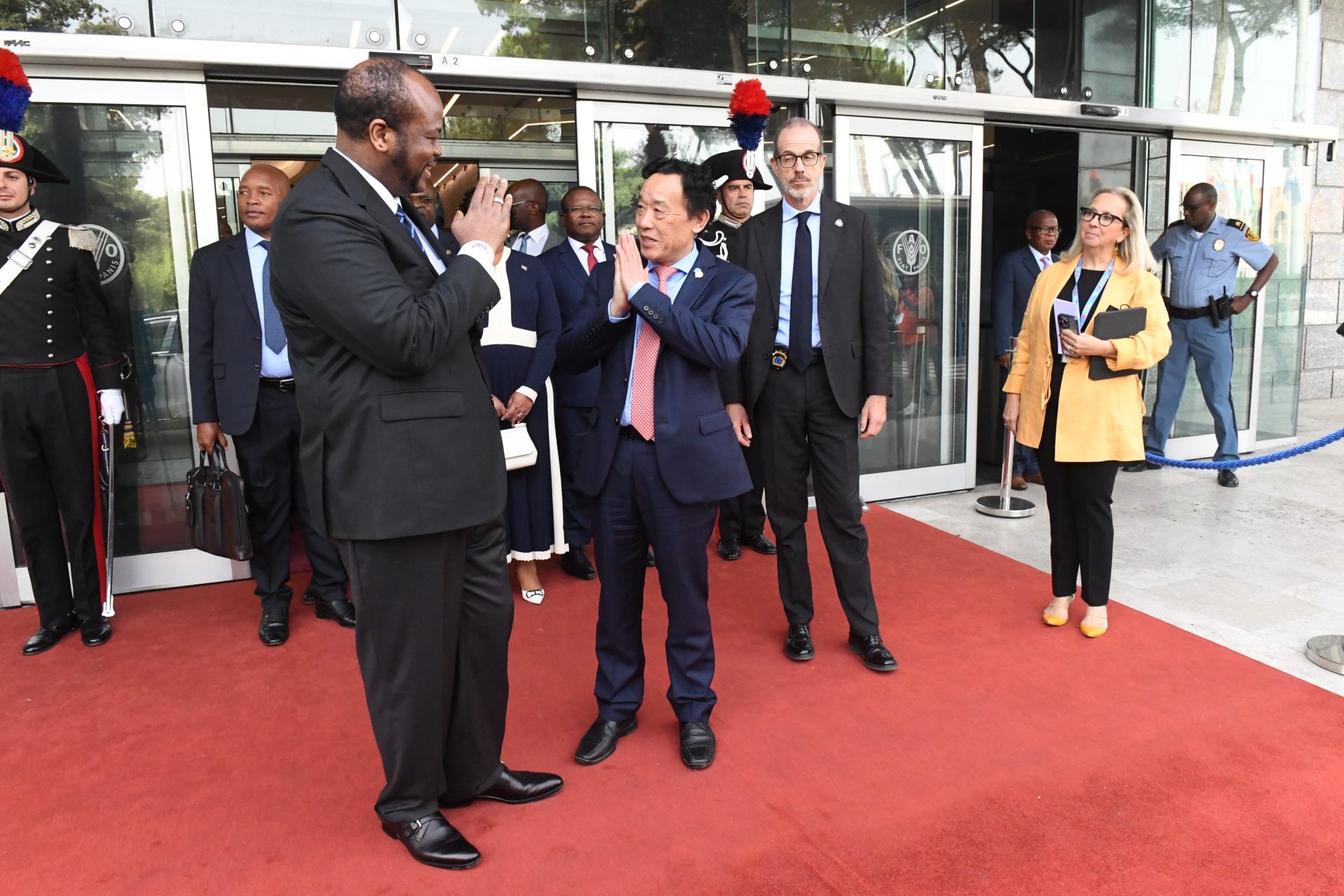By King’s Office Correspondents
ROME, ITALY: Increasing cooperation and support towards food self-sufficiency to end hunger topped the agenda when His Majesty the King held talks with the Food and Agriculture Organisation Director General, Dr Qu Dongyu.
The bilateral meeting was held at the FAO headquarters on Tuesday afternoon, where he also got to sign the institution’s Golden Book.
FAO has supported the Kingdom of Eswatini in various initiatives, including the development and review of the Eswatini National Agriculture Investment Plan (ENAIP), the establishment of the Eswatini Development Fund, and the Irrigation Master Plan.
The organisation has also assisted in the development of the Agriculture System Transformation Programme, aiming to improve food security in the Kingdom.
RELATED: Enhance food security, skills exchange – King
FAO has also supported the country in the implementation of Green Cities Initiatives and the roll-out of agricultural and Hand-in-Hand Investment (HiHi) initiatives for increased private investment and sustainable employment.
The meeting comes at the back of His Majesty’s keynote address at the World Food Forum, where he proposed seven possible solutions to the global food crisis that has hit hardest on the African continent.
Citing the 2024 report on food security and nutrition in the world, which reveals a significant increase in global hunger due to COVID-19 affecting 152 million more people in 2023 than in 2019, His Majesty the King has stated that a “Nkwe” action approach is necessary to address it.
The king lamented the unsatisfactory outcomes of current agricultural systems, which are leaving many people behind, particularly in Africa.
The king’s proposals to the FAO aim to transform agri-food systems to become resilient and inclusive, involving government intervention to reduce over-regulation and ease business costs.
They promote healthy eating by promoting diversity, fresh food, resilient crops, local production and limited consumption of processed foods.

Regenerative agriculture has been recommended to support biodiversity, enrich soils, improve watersheds, increase carbon capture and contribute to global warming reversal.
They call upon low-resourced communities to switch to resilient, sustainable and inclusive food systems through smart subsidies, structured incentive frameworks and smallholder inclusive financial instruments.
Climate finance was also listed as essential to create opportunities to make food systems more sustainable, especially when blended with public, private sector and development partners’ finances.
RELATED: King urges entrepreneurs to seize vast opportunities beyond Eswatini borders
The King also submitted how green technologies, such as conservation agriculture techniques and integrated farming approaches, should incorporate data and information systems, digital technologies, innovation and fit-for-purpose institutions as accelerators for agri-food system transformation.
His Majesty said these were essential and urgent considering that about 590 million people worldwide will still suffer from hunger in six years’ time and that this is slowing progress towards achieving Sustainable Development Goal (SDG2) 2 of zero hunger by 2030.
His Majesty the King is in Italy for the WFF and will hold several bilateral meetings with various leaders, including Pope Francis, in the Vatican later in the week.


